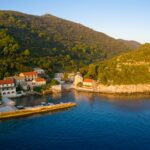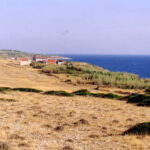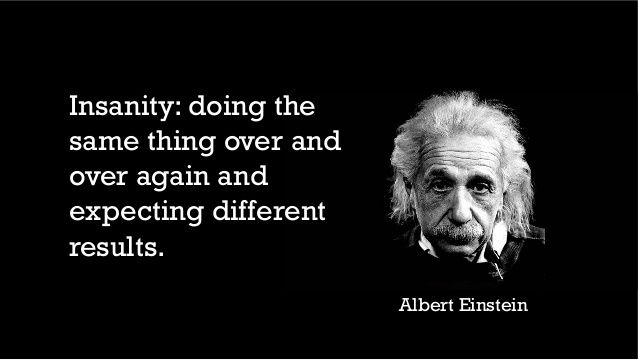
If we had a kuna for every paradox in Croatia, we’d be able to retire right now, but we’ll settle for 25 this time around – a snapshot of life in Croatia.
1. The quality of life
Croatia is a beautiful country, with vast natural resources, clean water, clear sea, and with almost no pollution issues. On the other side, it has one of the worst waste management systems in Europe. While the rest of the EU averages a recycling rate of 40%, in Croatia it totals up to just 8%. It seems that Croatia has to thank its natural beauty to the demise of industrial production in the country, as in general, Croatians do not take much care enough about saving their eco-system.

2. Tourist-oriented economy, but not ready to adapt to the tourists taking over
Tourism makes up for more than 20% of Croatian GDP, which is actually not so recommendable for the economy of the country, but since things are as they are, one would expect Croatia to be quite a tourist friendly destination. And it is when it comes to the general public but there are plenty of examples where local communities are stopping the projects that would disturb their peaceful way of life, and sometimes it feels that some Croatians would be happier if the tourists would just send they money in an envelope and stay home.
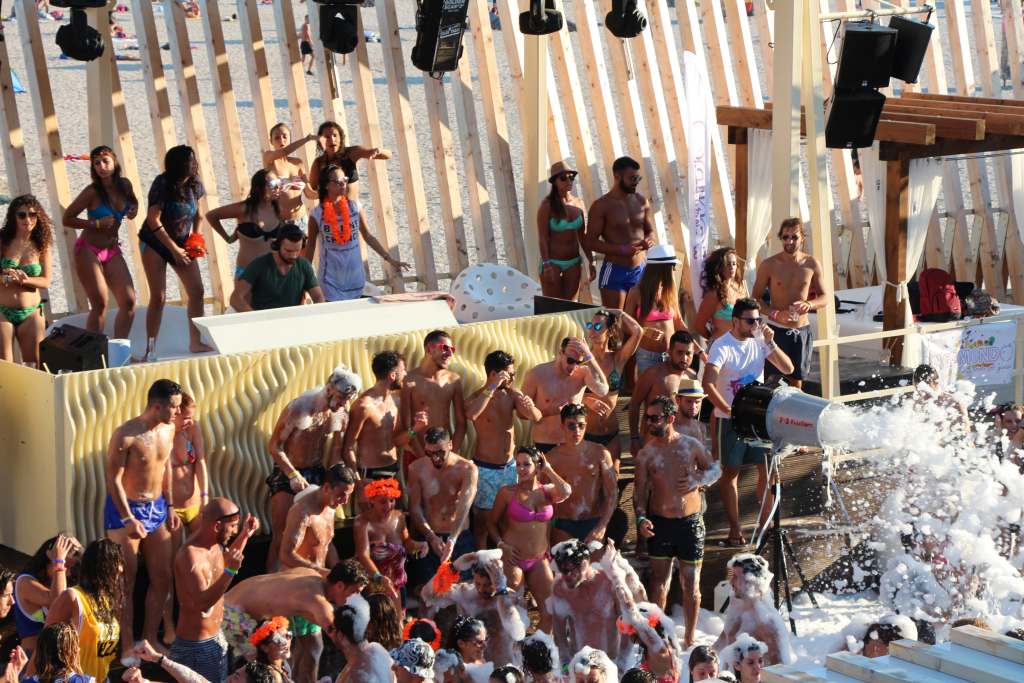
3. 13 centuries of battle for independence, and 20 years of doing a lot to lose it
It is written in the Croatian Constitution that Croatia is founded on the will of Croatian people and it dates back to the seventh century. Croatians have fought for their independence and won it in the Homeland War. Since then, Croatia has been selling its most valuable resources, the process that is still going on today. In the late eighties, Croatians had enough of getting orders from Belgrade, but these days, orders are coming from the owners of the Croatian foreign debt, and they seem to be ok with it.
4. Birthplace of many world famous scientists, not caring much about science and education
Throughout history, Croatian scientists have given the humanity numerous inventions, but most of them did it abroad. Nikola Tesla was born in Croatia, do we need to say more? But, just as Tesla at the end of the nineteenth century, Croatian scientists in the twenty-first century also have to take their knowledge and business abroad if they are to achieve success in their domains. Meanwhile, in Croatia, there are cuts in the state budget for education. The new school curriculum is being discussed nowadays, with political pressure rising daily, and since it is long overdue we are all waiting to see whether it will go ahead or be scrapped by the new government.
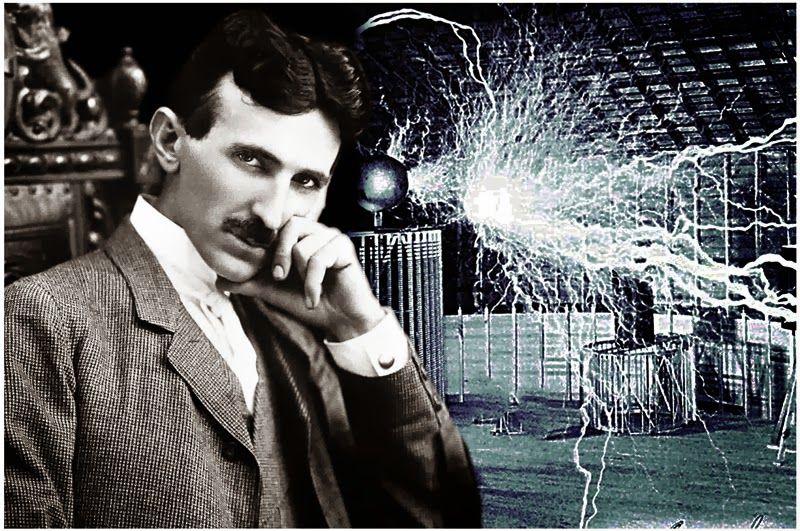
5. Bringing down the communist rule, but having a hard time losing the communist mentality
Croatia was never a communist country, as the ruling system in Yugoslavia was not as rigid as it was in the Soviet-ruled countries, but the communists were in power during that unique socialist system. After the abolishment of the one-party system, Croatia was founded as a capitalist country, with the free market and private property as a fundamental right. Democracy was there, but Croatians still have a hard time to reduce their leaders to a human level, and often react to the criticism of the ruling politicians as an attack on the country. It was actually the law in Yugoslavia, and if one said anything against Tito, he or she would be prosecuted for endangering the state. Politicians are exploiting that fact even nowadays, as it seems that many people have forgotten that there is no similar law in modern Croatia.

6. Country of great sport success with the worst sport management
Even if one’s never heard of Croatia, names such as Goran Ivanišević, Janica Kostelić, Dražen Petrović, or at least Davor Šuker surely ring a bell. Being that way, one would expect that Croatia is full of sporting venues, halls, pools, and stadiums. But, there are just a couple of proper stadiums in the country, and even though Croatia is a world power in Water-polo, most of the cities have no public pools. A few new sport halls were built for the World Handball Championships, but as some of them are so expensive, there is plenty of doubt about their future. Most of the Croatian schools do not have adequate sporting facilities. With Croatian ruling sport officials being a part of numerous corruption affairs, it is safe to paraphrase the sentence about Croatian Tourism; Croatia is the motherland of accidental sport success.

7. Land of a thousand islands, not taking care of the islanders
The beauty and the value of Croatian islands are both remarkable, and Croatia is rightfully proud of that fact. There are more than 1000 islands: exact number is 1244. At the same time, there is a sad process of depopulation of the islands, and not much is done about the matter. More so, some subsidies were cut lately, because there is not enough money in the national budget for that anymore. There are other priorities, as there are more important expenses there, like the salaries of the politicians.
8. Predominantly Christian country not caring much about Christian values
92% of people in Croatia declare themselves as Christians. In a perfect world, if all of them would take to the teachings of their religion, there would be no corruption, thievery, or intolerance here. It seems that it is more important for Croatian people to declare themselves as Christians, but to obey the Commandments. And we did not get the number wrong, as there are some 87% who are declared Catholics, and 5% are Christians of other confessions. And the level of intolerance between those is sometimes worrying.
9. Getting out of the crisis by pushing reforms to never get out of it
There is a joke in Croatia that the crisis has been here for so long, it received citizenship. As long as one can remember, there was no time yet when Croatia was not in crisis or was not trying to get out of one while pushing new reforms. Croatians are so overwhelmed with reforms that they cannot keep track of them. Usually, imposed reforms further complicate things so new reforms are proposed to reform the previous reforms and round in circles it goes.
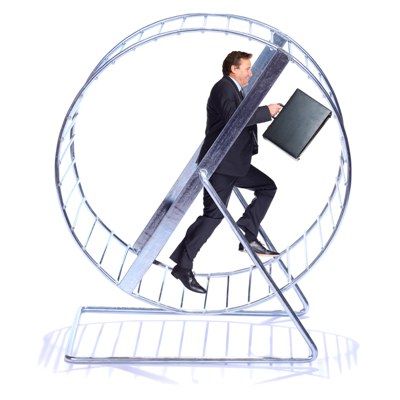
10. Croatia – full of life, but decreasing in numbers of inhabitants for years
United Nation’s study “World population prospect” has shown the numbers; if trends continue, Croatia will lose 30% of its population until the end of the century. A fact that would alarm most of the countries, but in Croatia, it is mostly used in pre-election promises, the time when politicians talk about reforms which would change the trend. And we told you about reforms in the previous paragraph. It is possible that the trend will get even worse as many young Croatians are planning to leave the country after they finish their education, according to some surveys.
11. Small country with massive bureaucracy
Just over 4 million people. 128 cities, and 428 municipalities. Each with its own bureaucracy, and with almost no decision power at all. And on top of them all, there are 20 counties with their own administration which holds pretty much all the power. The level of decentralization is small, even though Croatia is a land of many differences, and all those bureaucrats just relocate the funds dedicated to them by the government.

12. Large unemployment rate, but in need of working force
This is somewhat connected with paragraph four of this article; there are more than 238 thousand unemployed people enlisted in Croatia, and according to unofficial data, that number is actually higher than 300 thousand. Still, there is a number of employment ads being unanswered, more each day.Croatia is educating an increasing number of specialists that are already highly represented in the unemployed population. So, there are many Croatian economists working as cooks, law school graduates working in construction, philosophers working as IT managers, and quite a number of physicians working as politicians, even though there is a shortness in medical personnel all over Croatia.
13. Sea oriented country with famous fisherman tradition but exporting most of the fish
The Adriatic Sea is rich with fish, and Croatian fishermen exploit that fact. But more than 90% of that fish ends up in plates of Italians and other Europeans. Croatians eat some 8,5 kg of seafood per capita per year, and in other Mediterranean countries, that number goes up to 50-60 kg per year. As if that was not enough, half of the seafood consumed by Croatians is imported!
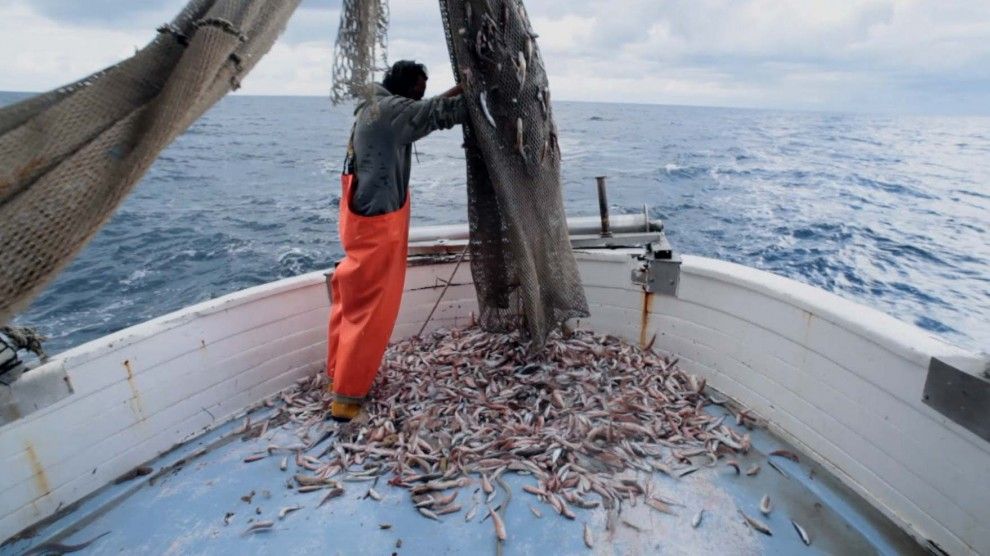
14. Nonsmoking country subsiding tobacco producers
Ok, it is not smoke-free, as the law prohibiting smoking in public places is highly ignored, but the law against smoking is in force. Meanwhile, Croatian government is subsiding tobacco growers with some 7 million Euro per year. Of course, those farmers should not be discriminated, but how about relocating funds to encourage them to grow something else, as there is an intention to improve the state of public health?
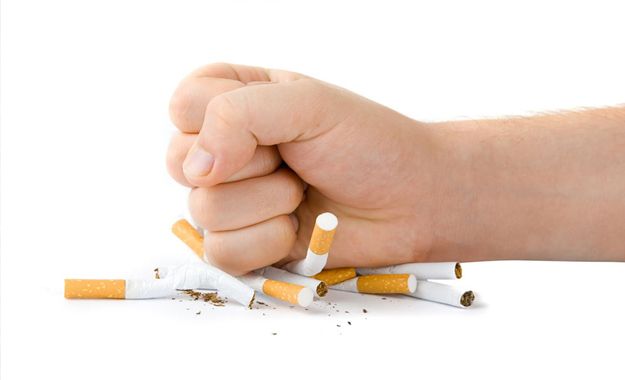
15. Land of patriots unwilling to pay the taxes
Croatian patriotism is sky high, and Croatians are very proud of their country. Unfortunately, their patriotism often stops when it’s time to pay the debt to the country. Croatia has more than 1,5 billion Euro of unpaid taxes. Here we direct you back to point you to paragraph five, as it is yet another legacy from Yugoslavia, since, in those days, there was no need to worry much about fiscal responsibilities, as there were not so many private properties or businesses.
16.One of the countries with the highest tax burden in the world, with not much to show for it
Some studies show that only Norway has a higher tax burden per capita in Europe than Croatia. And while Norwegians have quite a few benefits from it all, Croatia has poor infrastructure, judiciary system is slow, healthcare is getting more expensive, and the free education is anything but free. Social security is lacking and with the announcements made that new taxes are to be introduced, property tax, in particular, it can only get worse.
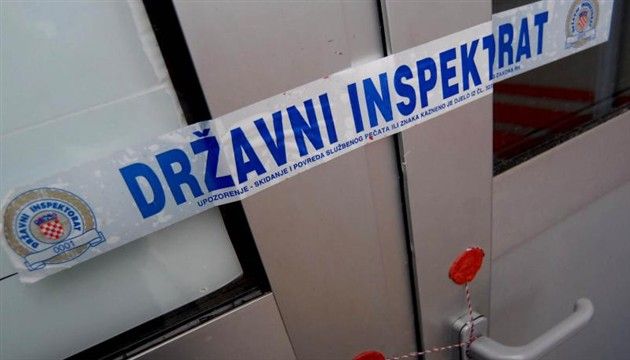
17. Land of equal chances, but not for everybody
It is not so much a problem of Croatia only, but here it is much more evident. You know the proverb that says if one kills a man, he is a killer, but if one kills millions, he is a historical figure? Well, in Croatia, if one is caught up in a misdemeanor, there is no way of getting out of it. Tax inspectors, sanitary inspectors, and the whole army of other inspectors cruise the country and punish small entrepreneurs for minor mistakes. At the same time, a lot of large investors reach costly pre-bankruptcy settlements with them. And a lot of problems small entrepreneurs have are generated by the same prominent business people whose sizeable tax debts are pardoned by the state.
18. Country proud of its writers, and not really reading books
There are so many streets and squares named after Croatian writers, numerous monuments are raised all over Croatia, and Croatians have some great writers that make them proud of their heritage. At the same time, according to the latest study, almost 50% of Croatians did not read a single book in last five years. That did not stop anybody from getting into a heated debate about the proposed changes in the school curriculum with the intention to renew (read: modernize) the reading program for the students.

19. Land of unknown number of dialects, but not sure about the one official language
If a foreigner tries to tackle the Croatian language, he would be surprised by his misunderstanding of the language if he goes to different regions of the country. Linguists in Croatia are trying to standardize one grammar and one official language, but as there are so many differences, it is a tough task. Many of them have the opinion that trying to promote one standard language as a melting pot for all the dialects is not a great idea, as this is a treasure that should be preserved.
20. Land of water, wind, and sun relying on fossil fuel and nuclear energy
Croatia has more than 3600 kilometers of rivers, averages 2600 hours of sunny weather per year along the Adriatic coast, and has some of highest wind speeds ever recorded in Europe. Perfect setup for exploiting renewable energy sources, but almost half of the power comes from the nuclear power plant in Slovenia and the thermal power plants in Croatia. Although the local people were opposing it, there is a new plant planned in Istria, and it will be powered by fossil fuel. And there is more: exploring of the underwater oil and natural gas fields is planned in the Adriatic.
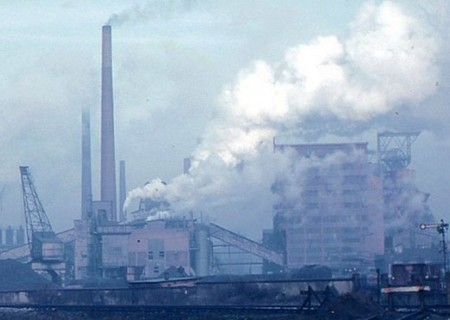
21. Love-hate relationship with the neighbors
Croatia has a long and turbulent history with its neighbors. Wars, occupations, common fights for freedom, more wars, war atrocities and much more happened in the history of relations between the neighboring countries. Even so, there are a lot of odd affairs connected to the sentiment of the common people. As the most recent war was the one with the Serbian aggression, one can be surprised by the fact that a lot of hardcore nationalists in Croatia adore Serbian folk music. Serbian TV shows are highly popular in Croatia, and at the same time, there are big protests about the rights of the Serbian minority in Croatia.
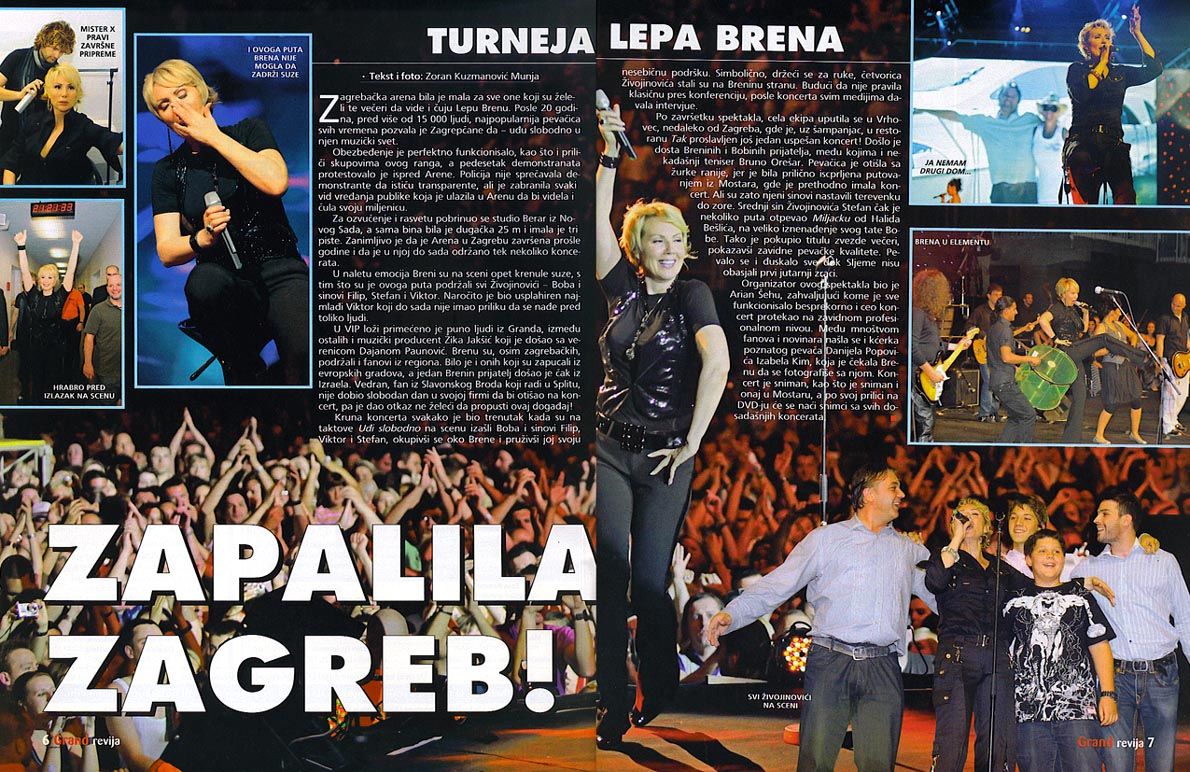
22. More on love and hate: Slovenia
The border dispute between Slovenia and Croatia sparked a lot of media attention in the last decade, and with Slovenia slowing Croatia down on the path to the European Union, there was a lot of anti-Slovenian sentiment in Croatia. There’s one fact Croatians should be proud of: there is only one case in the history of the world of two neighboring countries that were never in a state of mutual war, that being Croatia and Slovenia. It will surely remain so, but we needed to point it out.
23. Only God is above the parliament in Croatia
It is a famous proverb in Croatia, meaning that the “Sabor”, or Croatian Parliament is the one and only venue where decisions about Croatia can be made. But in last years, Parliament has been diminished by partisan politics, and has become the voting machine for the ruling parties, as decisions are made on the other side of the St. Marc’s square, and one would have to go way back in history to find a single important proposal made by the ruling parties which was not approved by the parliament.
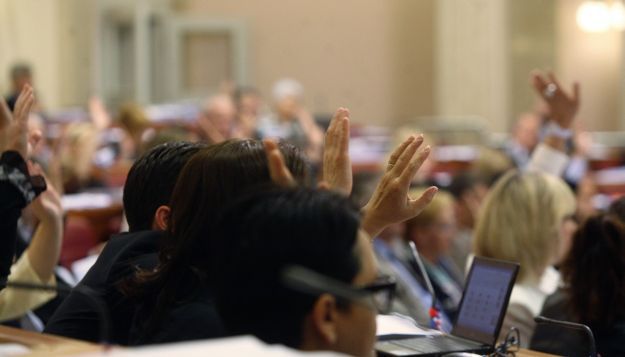
24. Doing the same thing over and over again expecting different results
And we are back in the vicious cycle again. Croatia has a big problem with its foreign debt. That debt is generated, among other things, by the unbelievable expense of the state bureaucracy. The number of people working in state non-profit organizations and government offices is sky-high and unsustainable. As all the ruling parties in Croatia tend to employ their members in state administration offices, they secure quite a comfortable of votes for their party. Funds are spent on unnecessary projects, and the common people and business owners are the ones who foot the bill in the end. When the money runs out, politicians raise taxes. When there is no room for new taxes, they simply take more loans. Come new elections, people elect the same politicians, expecting them to break the cycle. Sorry for the improper photo, but we did not say this, Mr. Einstein did.
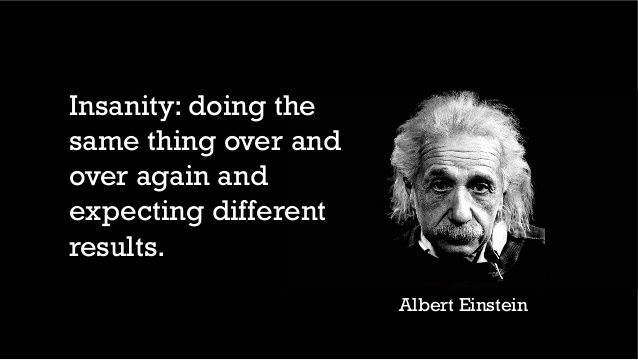
25. Most of the people unhappy with the state of affairs, but not doing much to change it
Croatians are not content with all the facts we have listed here but are not doing much to change it. More so, when faced with those facts, they respond by defending their country, listing all the reasons for the state of affairs. And often, it is more important for them who is listing the facts, than the actual facts. For example, Mr. Karamarko and the Croatian President, Ms. Kolinda Grabar Kitarović were making the point about young people leaving Croatia in pre-election time, but after they were elected, when someone else makes that point, one is almost declared the enemy of the state. And, God forbid if some foreigner dares to criticize. Here, we would like to redirect you to the editorial of Mr. Paul Bradbury published earlier.
Want to learn more about Croatia? Check out our 25 things to know series.







